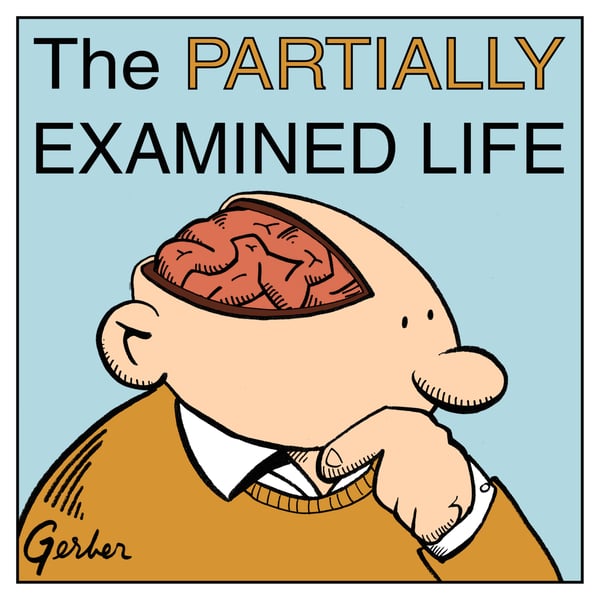PREMIUM-Ep. 273: Friedrich Schelling's Foundationalist Idealism (Part Two)
The Partially Examined Life Philosophy Podcast
Mark Linsenmayer
4.6 • 2.3K Ratings
🗓️ 12 July 2021
⏱️ 10 minutes
🧾️ Download transcript
Summary
Continuing on the Introduction to Friedrich Schelling's System of Transcendental Idealism (1800), focusing on the harmony between mind and world and imputing intelligence to nature.
To hear the full second part, you'll need to go sign up at partiallyexaminedlife.com/support.
Transcript
Click on a timestamp to play from that location
| 0:00.0 | The partially examined life philosophy podcast Part 1 episodes are designed to be self-contained, |
| 0:12.8 | fully satisfying experiences in themselves. |
| 0:15.6 | But for hardcore philosophy fans, we record for another hour or so to release behind |
| 0:19.9 | our various paywalls to folks that pitch in to help us make this show. |
| 0:24.1 | What you're about to hear is a preview of one of these Part 2 episodes. |
| 0:27.2 | We hope you enjoy it! |
| 0:29.4 | Episode 273 Part 2, we've been talking about Shelling's system of transcendental idealism. |
| 0:35.3 | So we're at the preliminary division of the transcendental philosophy. |
| 0:40.2 | The way he starts off the section he tells us that now that we've made the subject primary, |
| 0:46.0 | how do we say how knowledge is possible? |
| 0:49.2 | He's going to say, we're going to find ourselves a first principle of philosophy, which will |
| 0:53.1 | turn out to be self-consciousness. |
| 0:54.9 | And we're going to do that by tracing some of our fundamental convictions, convictions |
| 1:01.0 | that are deeply rooted in the human understanding back to this fundamental conviction. |
| 1:05.4 | We'll show that they all originate in this first principle. |
| 1:09.2 | It begins from naive realism, the idea that there are things outside of us and presentations |
| 1:13.1 | coincide with them and we're acquainted with them as they are in themselves and they're |
| 1:16.8 | determinacy, effects our sensibility, and gives us representations, all that stuff. |
| 1:22.2 | And the second intuition that we have is that we're free and A and B conflict. |
| 1:29.4 | So it's the classic conflict between freedom and determinism. |
| 1:33.7 | And then in the third division of transcendental philosophy, where resolving that contradiction, |
| 1:40.0 | we need this predetermined harmony where the same activity that produces the objective |
... |
Please login to see the full transcript.
Disclaimer: The podcast and artwork embedded on this page are from Mark Linsenmayer, and are the property of its owner and not affiliated with or endorsed by Tapesearch.
Generated transcripts are the property of Mark Linsenmayer and are distributed freely under the Fair Use doctrine. Transcripts generated by Tapesearch are not guaranteed to be accurate.
Copyright © Tapesearch 2025.

